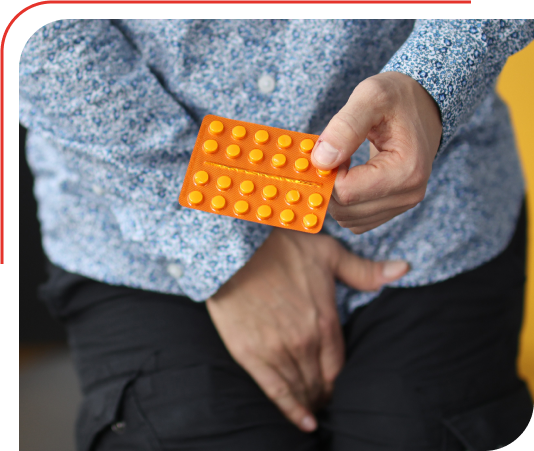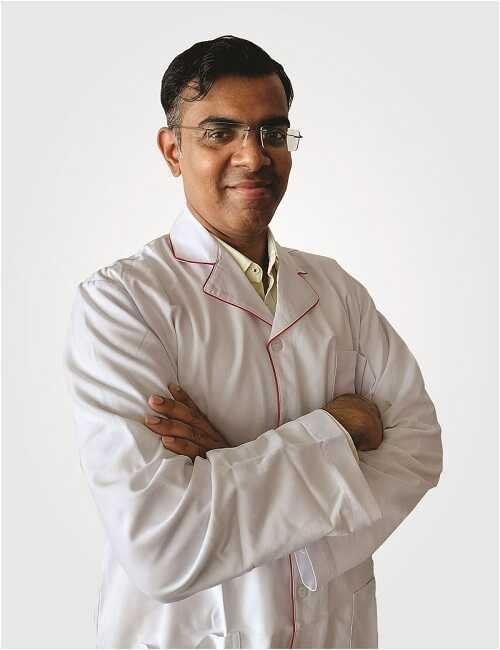Home » Speciality » Urology
Urology Treatment &
Surgery in India

Why Choose Wockhardt Hospitals
for Urology?
Renowned Urologists
at Wockhardt Hospitals
- Mumbai Central
- Mira Road
- Nagpur
- Rajkot
What is a Urinary Infection?
Urinary infection or urinary tract infection (UTI) is a type of infection that affects the urinary system. This infection commonly occurs in the urethra (called urethritis), urinary bladder (called cystitis), and kidneys (called pyelonephritis). Since urine is the byproduct of the human body, it doesn’t contain germs or bacteria. When kidneys filter the blood, excess water and waste products are converted into urine.
Generally, urine passes out from the body without contamination. However, disease-causing pathogens could enter outside the body, causing inflammation and infection. Urology Surgeries could be one of the solutions for all your urological problems offering effective urology infection treatments. Urinary infections are common among all age groups and gender. As per some health reports, nearly 8 to 10 million people visit urologists complaining about urinary system infections.
What Causes
Urinary Infection?
Urinary tract infections (UTIs) are caused by microorganisms, generally bacteria that enter the body through the urethra and reach the bladder causing infection. Though bacteria most commonly affect the urethra and bladder, they sometimes travel to ureters and damage your kidneys. Approximately 90% of bladder infections are caused by E.Coli, a bacteria found in small intestines. Besides this, unprotected sexual incontinence, constipation, dehydration, and kidney stones can also cause the condition.
Procedures to be taken for Urosurgery
Urologists use different procedures to diagnose urologic conditions and provide effective treatments. Some of these procedures are;
- Cystoscopy/Urethroscopy
It is a urology procedure that involves the insertion of an instrument called a cystoscope to examine the lining of the urethra and bladder. A cystoscope is a long thin tube that has a camera and light at the end. The process is generally used to diagnose the bladder condition and enlarged prostate.
- Ureteroscopy
This urology procedure is used to diagnose & treat Uretric stones. Ureterscope, a special instrument with a light and camera, is guided up to the ureter through the urethra and bladder to spot & treat stones in Ureter..
- Lithotripsy
In this procedure, laser or shock waves are used to break stones into small pieces in the bladder, kidney, or ureter. These small pieces can easily pass through urine.
- Penile Plication
It is a surgical urology procedure that treats penis curvature, which happens due to the formation of scars under the penis skin.
- Orchiopexy
It is a procedure used to repair undescended testicles. During the process, the testicle is moved into the scrotum from the groin and abdomen area. It’s then attached to the scrotum with stitches.
- Penile implants and Prostheses
Penile prostheses and implants are devices inserted into the penis to manage erectile dysfunction and keep the penis erect during sexual intercourse. These devices are generally recommended in conditions where the penis loses its rigidity to remain erect.
- Vasectomy
This is the most common urological operation men can have. It is a surgical process for birth control. The doctor cuts the vas deferens connected to the testicles to stop the supply of sperm.
- Prostate biopsy
Urologists perform a prostate biopsy to diagnose prostate cancer. In this urology procedure, prostate tissue samples are collected and sent to the lab for diagnosis.
Diagnostic Tests
Urology Surgery
For this surgery, different tests could be performed to diagnose urinary infections. These tests fall into different categories given below.
Imaging Tests
These urosurgery tests involve the use of different energy forms such as X-rays, ultrasound waves, radio waves, etc. These include;
- CT Scan
It combines different X-ray images taken from multiple angles. The test provides 3D pictures of soft tissue and organs such as the bladder, kidneys, prostate, etc.
- MRI
It uses magnetic and radio waves to create images of the adrenal glands/soft tissues.
- Ultrasound
An ultrasound uses sound waves that strike the soft tissues and bounce back, creating 3D images of the organs. It is also the common most test done for Utenary stones.
- Intravenous pyelogram
It involves a combination of X-rays and injectable dye to observe how the urinary system works and the function of kidney. It can also dignose urinary and renal calculi along with kidney function for creating effective urology treatment plan.
Lab tests
These tests include the following
- Blood tests
These can help identify numerous pathologies, including cancer, infection, urinary dysfunction, etc.
- Stone analysis
Here, the patient is asked to pass out the urine through a strainer, and the stones collected are then analyzed.
- Urine analysis
The doctors analyze the urine sample to check out for infections and abnormalities.

Minimally invasive tests
These tests or urology operation methods involve small incisions or cuts for diagnosis. These include;
- Biopsy
During this process, a tissue sample is collected and checked for conditions like renal failure or cancer.
- UDS
It can diagnose stress & drug incontinence.
How to Recover Fast
after Urology Surgery?
It takes 3 to 4 weeks to recover after a urology operation or urology treatment as the incisions will require some time to heal.
Here are some tips to fasten the recovery process.
- Get rest
After a urology operation, the patient must rest properly. He/she should take at least 7 to 9 hours of sleep.
- Eat a balanced diet
A well-balanced diet plays an important role in boosting the healing process. It can help to minimize the infection rate and promote healing.
- Go for short walks
Going for short-distance walks without overdoing it can help increase circulation and fasten healing and recovery.
- Drink plenty of water (minimum 2 liters per day)
FAQs on Urology Surgery
Q. What are the success rates of urology treatments for male infertility?
The underlying reason, kind of treatment, and individual characteristics all influence the success rates of urological interventions for male infertility. The composite rate of successful treatments could be from 30% to 60% depending on the conditions and the technique applied.
Q. What are the common risks associated with urology operations?
Infection, bleeding, urinary tract damage and anesthesia problems are rather typical issues with urological operations. Even though they are less common, it is still possible to experience problems such as erectile dysfunction, urinary incontinence, or infertility, depending on what kind of operation it is.
Q. What is a common urology problem?
Urinary tract infections (UTIs) are a prevalent urological problem that afflict millions of people globally. When bacteria enter the urinary tract, it may trigger UTIs, which can cause pain, frequent urination, and occasionally even a fever. In order to avoid problems, prompt diagnosis and treatment are necessary.
Q. What colour is urology urine?
In urology, urine usually has a light to dark yellow because of the pigment urochrome, produced when haemoglobin breaks down. The shade might change based on medication or drug use and degree of hydration. Darker colours may signal dehydration or other medical issues, although pale yellow generally suggests appropriate hydration.
Q. Which colour of urine is not good?
Dark amber or brownish urine is usually not a good sign, as it might indicate blood in the urine, liver or renal disorders, or dehydration. If your urine always seems darker than usual, you should definitely see a doctor, as this might be a sign of an underlying medical ailment that needs to be treated.
Q. Is urology surgery painful?
Q. What are some do's and don'ts before the urology surgery?
| Dos | Don’ts |
|---|---|
| Wear loose-fitted and comfortable clothes when you come for the surgery. | Do not wear jewelry and come for the surgery. Leave them at home. |
| Ask your doctor about the medications that should be taken before the surgery. | Consumption of alcohol and tobacco is not allowed before the surgery. |
| Do come with one of your family members or friends who can drive you home after the surgery and stay with you during the surgery. | Do not consume any anti-inflammatory medicines regularly can affect kidney function. |
| Bring everything with you that the doctor has asked for (old papers, documents of surgeries and treatment. | Do not drink or eat anything from midnight if your surgery is the next day. |





















